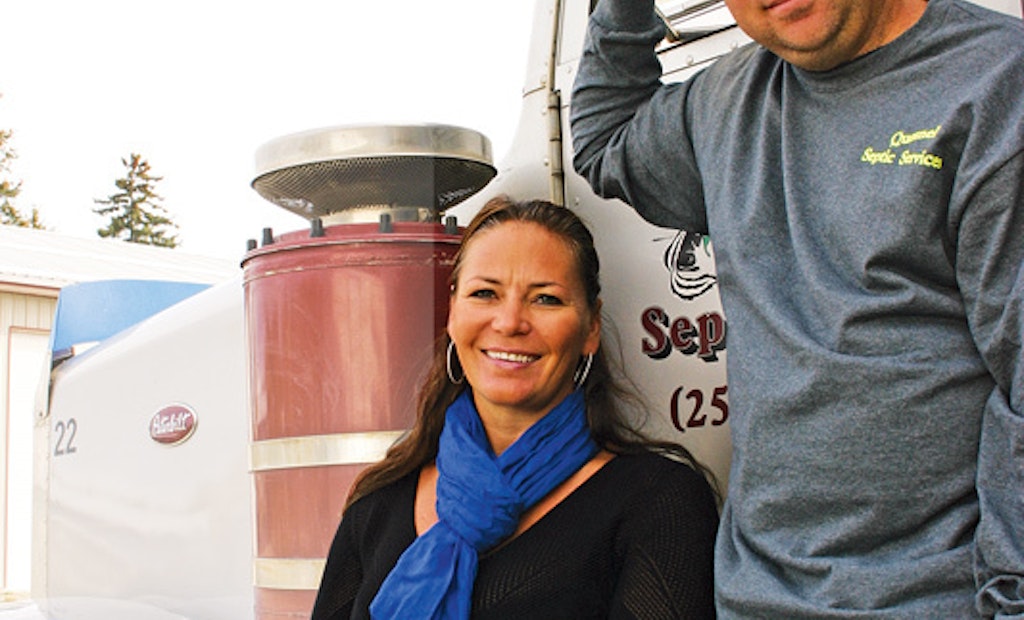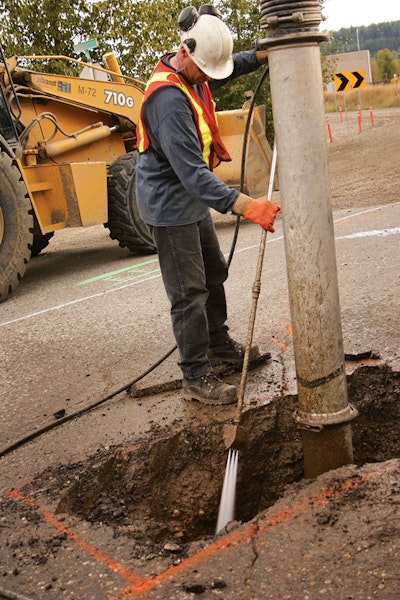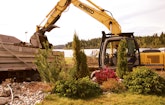
Interested in Plumbing?
Get Plumbing articles, news and videos right in your inbox! Sign up now.
Plumbing + Get AlertsQuesnel Septic Service Ltd. of Quesnel, British Columbia, Can., operates on the principle that we are living on borrowed water, which must be returned to the environment in the best condition possible. The company continues to grow around a core business of septic and industrial pumping as it expands its slate of offerings to include septic tank design and construction and other services.
Quesnel (pronounced Kwen-elle) is located more than a seven-hour drive northeast of Vancouver, B.C. The city sits at the center of a thriving logging and forestry industry with a municipal area population approaching 22,000. The company serves an area delineated by smaller towns: Hixon 40 miles north, Nazko 70 miles west, Barkerville 50 miles east and the same distance to the south.
Quesnel Septic was founded in 1968 and run as a one-person shop for 30 years. The business was purchased by Kim Pitcher and her then-husband Sean in 1998 with some older equipment.
“It was a mom-and-pop operation,” recalls Kim. “But it was something that we could operate out of our house. We owned 50 percent of the business and our parents on each side of the family owned 25 percent each.”
Committed to growth
The business hired its first employee in its first year. Kim worked at administering the office and dispatch, while Sean worked primarily on the road, along with the hired help. Pitcher was also kept busy as a mother, raising son Morgan, born in 1994, and daughters Emalee and Jade, born in 1996 and 2001. Kim’s father, George Yendrys, has always looked after equipment maintenance.
From the start, the owners were committed to expanding the business on the foundation of septic service.
“It’s always exciting to try new challenges and invest in new equipment to offer more services to increase revenue,” says Pitcher. “In a small community, you can’t grow and get ahead by depending entirely on septic pumping. There are also two competitors in town and it doesn’t pay to stand still.”
The company soon purchased a pipe camera and pipe cleaning equipment from UEMSI to pursue municipal CCTV contracts. It also purchased a Western Star water truck with a 4,000-gallon steel tank in 2000, used to provide dust control in mill yards.
Quesnel got into and then divested itself of a portable sanitation business during this growth period. Then, in 2005, the couple bought out their parents’ interests, becoming equal partners in the corporation.
Industrial pumping
The company increasingly turned to industrial pumping to keep its equipment fleet profitable. Currently, half of the company’s pumping activity serves industrial clients, balancing the business during the winter months when residential septic drops off. Recent seasonal staffing patterns see the company employing as many as 10 people in the busy season, but as few as five in the winter. The industrial work keeps employees on the payroll.
“We have a lot of mills and industrial processing customers on our regular route,” says Pitcher. “However, this is strictly transportation of the fluids from holding tanks or trenches and these aren’t caustic substances or harsh chemicals. It’s often process water and we aren’t responsible for treating or disposing of these effluents – just moving them to a treatment facility somewhere else.”
While servicing residential septic systems, the company gained increasing experience in diagnosing system failures and predicting imminent problems. Customers were also requesting assistance in repairing or upgrading their septic systems.
“At that point, we invested a lot of money in a 2006 Gehl 120 excavator, a 2007 Kubota KX161 mini-excavator, a 2006 Bobcat skid-steer and a 1987 International dump truck, so that we could work on repairing our clients’ septic systems,” says Pitcher.
British Columbia operates under strict sewerage system regulations regarding septic tanks. While anyone is theoretically allowed to repair an existing septic tank, replacing a septic system or building a new one requires the contractor to be certified as a Registered Onsite Wastewater Practitioner by the Applied Science Technologists & Technicians of British Columbia. ROWP certification involves completing an educational program and proving fully competent in site evaluation and system design. Septic system permit applications to the provincial Ministry of Health must include a scale drawing of the proposed system. As-built drawings of the installed system must also be filed.
“Sean got his ROWP in 2006 and we were soon getting into designing and building brand-new septic systems for area clients,” says Pitcher.
The new service dramatically changed the focus of the business, with 60 percent of the work now representing industrial and residential pumping and 40 percent septic system installations.
The business continued to expand. Outgrowing its home base, Quesnel Septic’s new headquarters, built in 2006, offered a 3,500-square-foot shop with a customer storefront.
The business continued to thrive, but in early 2013, the Pitchers called an end to both their marriage and the business partnership. For Kim to continue operating the business in Quesnel, she needed to raise enough money to buy out a half-interest in the company.
Forging a new partnership
Financial rescue arrived in the form of construction contractor Ben Blacklaw who purchased half the company’s assets in May 2013.
“I’d played hockey with Sean and knew the family and the business,” says Ben. “I was actually the contractor who built the Quesnel Septic shop and headquarters for the company. I was becoming tired of working winters in logging, so when I heard about the opportunity, I approached Kim and we struck a deal.”
Ben also brought a unique set of skills to the table. As a construction contractor, he’d already earned ROWP certification and had experience building area septic systems.
“I wasn’t working in the pumper end of the business, but with my experience in installing septic systems, we’ve now got both sides covered,” he says. “We also install water mains and fire hydrants and recently took on a municipal contract in the town of Nazko laying 8-inch sewer pipe.”
With his construction expertise and a large client list, Quesnel now offers complete construction packages, including land clearing, soil drainage work, and construction of roads, houses, retaining walls and commercial buildings.
Ben says it’s challenging to adjust from a sole proprietorship to a partnership, but he’s pleased with the number of projects the company is attracting. As an active supervisor, he notes that field workers have also had to adjust to his direct participation in most of the projects.
“They were working somewhat independently, but having a boss who works alongside them is helping the company to become more efficient,” he says. “I also have an easy time hiring for the business. If you’ve been logging you already know half the people in town and if you don’t know them personally, you know someone who does.”
One of the company’s original trucks, a 1989 Ford LNT8000, a 2002 Sterling carrying an older tank and pump transferred from another rig, the 2006 Bobcat skid-steer and the 2007 Kubota mini-excavator are still in active service. The current fleet also includes: a 1998 Kenworth vacuum rig with a 2,500-gallon steel tank from Cusco; a 2003 Vactor 2115 combo truck built on a 2003 Sterling chassis from Jack Doheny Companies; a camera unit from Aries Industries Inc.; a 1990 Peterbilt dump truck; a 2007 ED190 Kobelco excavator; and a 2008 John Deere 315 skid-steer.
Three dedicated vehicle bays in the shop allow the company to perform most maintenance in-house.
“With our in-house repair and maintenance capabilities, we’re keeping our fleet in top shape with whatever we can tackle without sending them out,” Kim says.
The company is committed to training and professional development. Quesnel Septic has made the long trip to attend the Pumper & Cleaner Environmental Expo International in the past and is considering a future trip across the border.
Kim continues to advertise and market the business actively. “We advertise in the Yellow Pages, local newspapers and bargain hunter publications,” she says. “We also actively manage our website and Facebook page.”
The partners are committed to continued growth. Kim recently received training to operate the company’s Aries inspection camera, while Ben continues to expand the company’s construction portfolio.
“Finding a new business partner overcame a big hurdle,” Kim says. “I’m confident this will lead to new business opportunities for both of us.”








